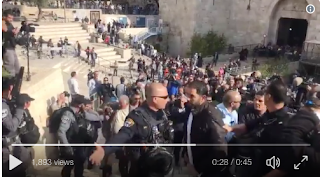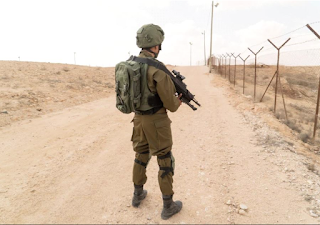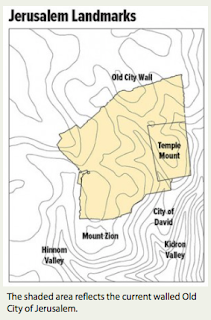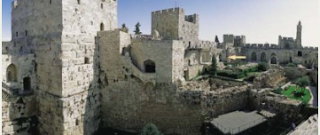The Hurt of War amidst the Hope for Peace
A Christmas meditation by Pastor Larry DeBruyn
For unto us a child is born, unto us a son is given:
and the government shall be upon His shoulder:
and His name shall be called Wonderful,
Counsellor, The mighty God,
The everlasting Father,
The Prince of Peace.
—Isaiah 9:6, KJV
(Source)
One of my favorite Christmas carols, I Heard the Bells on Christmas Day, contains the same line in all five stanzas; that being the sweet refrain, “peace on earth, good-will to men.”[1] Yet lurking ominously in the midst of this song lies this reckoning which contradicts the hoped for reality:
And in despair I bowed my head: “There is no peace on earth,” I said, “For hate is strong, and mocks the song Of peace on earth, good-will to men.” [2]
With the exception of a few decades, the history of the world is the history of war.
Even now by announcing its move of the U.S. embassy from Tel Aviv to Jerusalem, the United States government has taken a step towards its eventual recognition of Jerusalem, not as an international city as currently endorsed by the world’s nations, but as the capitol of the nation of Israel. The announcement has been greeted by demonstrations and protests, both organized and spontaneous, with masked masses burning both Israeli and U.S. flags, shouting defamatory and inflammatory protests and raising clenched fists in the air as they call for war.
 |
| (Source) |
Then, too, civilization remains under similar attack with so-called anti-fascists contradictorily employing violent means to seek a peace that is not there, with North Korea threateningly firing missiles over the Pacific Ocean towards the U.S. mainland, with Russia threatening by military conflict to seize eastern Ukraine, with ISIS and Al Qaeda, Boko Haran and other terrorist groups operating in the world, with massive movements of immigrant populations from one country to another the world over, all of this and more contradicts any romantic notion that there will be peace on earth and good will toward man any time soon. Perish the thought . . . but a devastating World War III may be just around the corner.
Throughout the world, terrorists have successfully interrupted the normal flow of civic life, especially where western interests are at stake. From Bali to New York, bombs have exploded and planes have been flown into tall buildings. The possible detonation of a dirty bomb by terrorists in a public place gravely concerns urban security and city officials. Dirty bombs not only do extensive damage in the vicinity of the explosion, but they will also emit low levels of radiation throughout an extended area several miles in diameter from the center of the blast. Just how severe a health hazard the radioactive materials pose over a long period of time is unknown. There may not be enough hospitals to treat the sick. Then too, if detonated in the stratosphere over earth, EMPs (electromagnetic pulse bombs) could send the world into chaos by destroying the electronic grid our utilities and communication systems (TVs, cell phones, Internet, etc.) absolutely depend on. Welcome to the new “dark ages.”
 |
| (Source) |
Violence and war are ugly. Every time I read or hear of the death of one of our soldiers in Niger or Afghanistan, I wince for reason of the pain that surviving loved ones—parents, wives, children, and friends—go through. Not only is war ugly, it’s also heartbreaking.
A generation ago we read about suicide bombings in Israel, a place that seemed a world away. But now those same types of bombings threaten our homeland. Jihad, the version of holy war perpetrated by Muslim terrorists-extremists, has come to this continent, and, for the foreseeable future, America probably will never be the same again. Hate continues to mock the song “of peace on earth, good will to men.” Christmas Day may provide a delusional day for us to forget the reality we live in, but the threatening fact of war, not peace remains.
Ironically, though, Jerusalem, the city whose name means “city of peace,” remains the epicenter of contention for international peace. Through the prophet Zechariah the Lord declared:
Behold, I am going to make Jerusalem a cup that causes reeling to all the peoples around; and when the siege is against Jerusalem, it will also be against Judah. And it will come about in that day that I will make Jerusalem a heavy stone for all the peoples; all who lift it will be severely injured. And all the nations of the earth will be gathered against it.
—Zechariah 12:2-3
Yet it is also decreed that Jerusalem will not be a besieged city in perpetuity, for One is coming to that city whose name is “Prince of Peace” (Hebrew, Sar-Shalom, Isaiah 9:6).
 |
| (Source) |
From Jerusalem, a city whose history bespeaks turmoil and dispute down through the ages, One is coming again, Jesus the Messiah, whose legacy will not be that of a brutal tyrant—though He will be a mighty warrior—but rather that of a “peaceful prince.” During His reign, “The wolf also shall dwell with the lamb, and the leopard shall lie down with the kid; and the calf and the young lion and the fatling together; and a little child shall lead them” (Isaiah 11:6, KJV). During His reign, nations “shall beat their swords into plowshares, and their spears into pruninghooks: nation shall not lift up a sword against nation, neither shall they learn war any more” (Micah 4:3, KJV).
Rulers and leaders, both ancient and modern, have staked their claim in human history as warriors. Today, their names live in infamy—Alexander the Great, Julius Caesar, Attila the Hun, Napoleon, Mao, Hitler, Stalin, Hussein, Bin Laden, and Ahmadinejad. Iron-fisted rulers have made themselves notorious through war. Never has the world known a real Prince of Peace.
But as promised by the prophet Isaiah, “Be joyful with Jerusalem and rejoice for her, all you who love her . . . For thus says the Lord, ‘Behold, I extend peace to her like a river, And the glory of the nations like an overflowing stream’” (Isaiah 66:10, 12). As Jerusalem is presently a hub for conflict, so one future day that city will become an international center for peace when the Prince of Peace governs her. Like a river, peace will flow out of Jerusalem to the uttermost parts of the world. Of this future Ruler, one scholar notes that His reign will “bring a cessation of war and a wholeness, or health, to society.”[3]
The world will not always exist in harm’s way. Isaiah saw the prospect of a coming different world order, one in which the whole earth would dwell in peace, one in which there would be “no end to the increase of His [i.e., Messiah’s] government or of peace” (Isaiah 9:7). Yet even in the coming day, given the antipathy of the world’s system toward Him, I doubt that the Lord Jesus Christ will be awarded a Nobel Peace Prize. Even so, we would cry out, “Maranatha!” which is to say, “O Lord come!” (1 Corinthians 16:22).
ENDNOTES
[1] Henry W. Longfellow, “I Heard the Bells on Christmas Day,” The Celebration Hymnal (Dallas, TX: Word/Integrity Music, 1997): 267.
[2] Ibid.
[3] Herbert M. Wolf, Interpreting Isaiah (Grand Rapids, MI: Zondervan Publishing House, 1985): 98.

